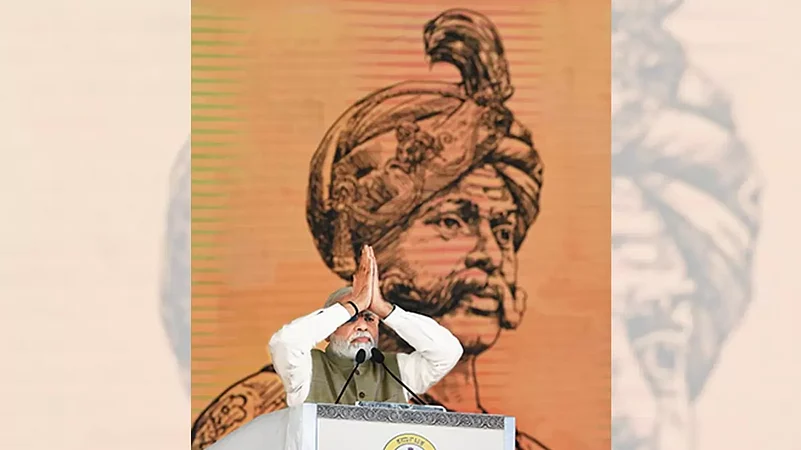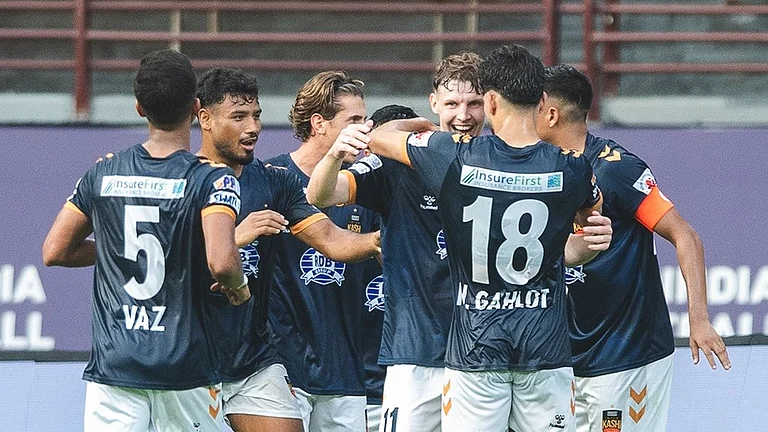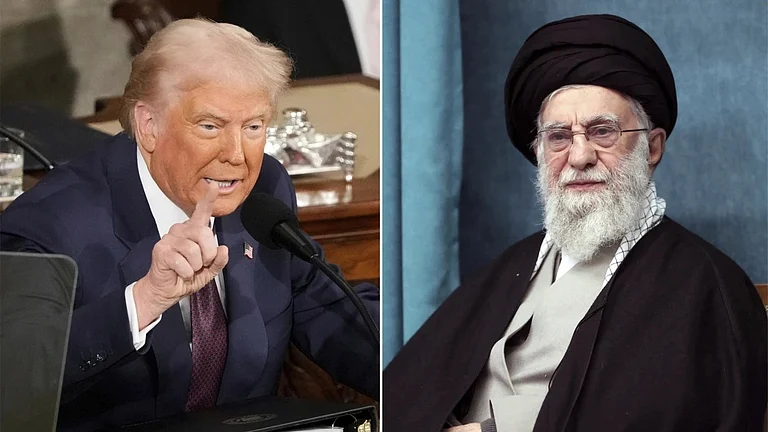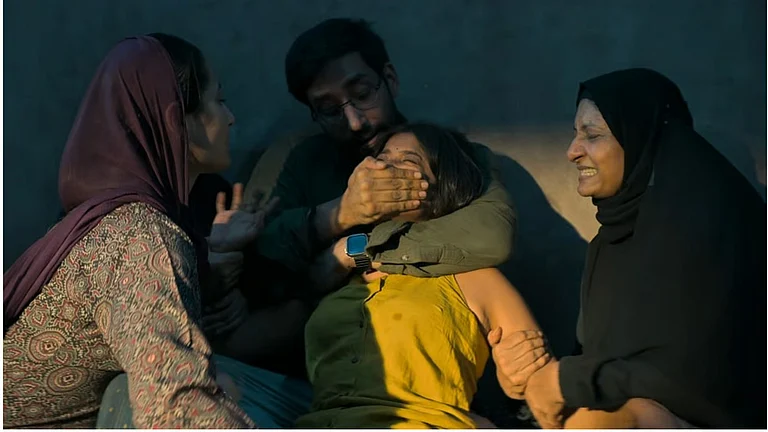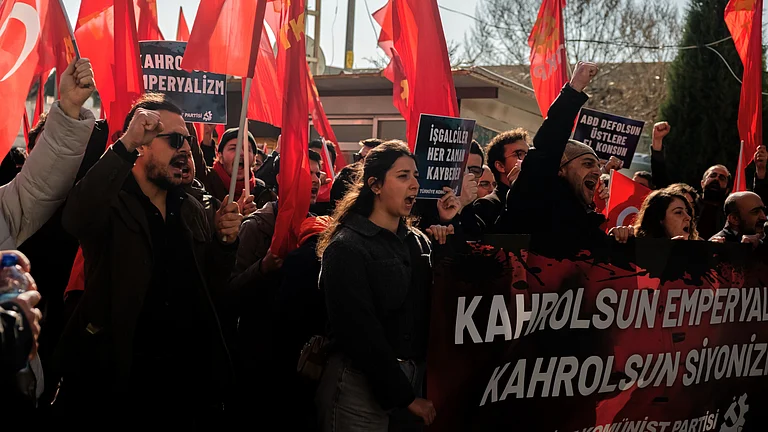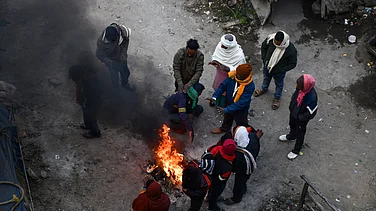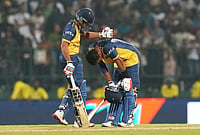While driving on the swanky, newly-inaugurated Bengaluru-Mysuru Expressway, a turn takes one to the picturesque Gejjalagere village. Situated amid tall pine trees and paddy fields, the lush green village grabbed headlines when Prime Minister Narendra Modi inaugurated the Expressway a few kilometres from it in March.
The Expressway has reduced the travel time between the two major cities. The Bharatiya Janata Party (BJP), in its bid to retain the reins of the state, is also hoping the Expressway would bring it closer to the heartland of the Vokkaliga voters, whom they have aggressively wooed this Assembly election.
A predominantly rural community, the Vokkaligas are key to any party’s electoral performance in southern Karnataka. They punch way above their weight in terms of setting the narrative and perhaps even influencing other communities in the villages they inhabit.
But many Vokkaligas—traditionally associated with farming—don’t seem to be impressed with the slew of development and infrastructure projects launched by the BJP as well the polarising narrative set by the party.
Sunanda Jayaram, a Vokkaliga and a prominent farmer activist, lives in Gejjalagere village in a house which is right on the Expressway. The cabinet in Jayaram’s hall stands out. Apart from housing a photo frame of the late Kannada actor Puneeth, a popular face in the region, it also includes a golden bust of Mahatma Gandhi and a white miniature of Meera Bai.
Jayaram is quick to stress the guiding principles of Vokkaligas—Vokkaliga means the farming community and Vokkalutha means the farming occupation. This is significant because many like her feel that the BJP works against the larger interest of the agrarian community.
An activist for 35 years, Jayaram feels the sentiment of farmers will override the BJP’s attempts to appease the Vokkaligas. It would also, she is confident, thwart the BJP’s attempts to polarise people communally in a region where the party has not gained much success yet.
BJP’s Vokkaliga Challenge
Although the BJP has done well in the Vokkaliga belt as in the rest of the state in the general elections, in the Assembly election, it has not made much headway. In 2018, the BJP won an impressive 104 seats in the 224-member Assembly but it fell short of the required halfway mark. Its rivals, the Janata Dal Secular (JDS), which won 37 seats, and the Congress, which scored 80, came together to form the government under H.D. Kumaraswamy, the son of H.D. Deve Gowda, a Vokkaliga.
Although the JDS-Congress government did not last and the BJP used its superior politicking and resources to win back power, the party realises the limitations of fighting alone in Karnataka. Without conquering the southern belt, especially the Old Mysuru region where the Vokkaligas rule the roost, it cannot quite win a majority on its own.
Eye on Vokkaligas
In 2023, as the BJP battles anti-incumbency, corruption charges and emerging internal rebellion within the party over ticket distribution, the party feels it needs to gain fresh territory and is hoping that will come from the Vokkaliga belt.
In the worst-case, to make up for losses in other regions, the BJP has saturated its growth in the coastal region and still enjoys the support of the Lingayats—the other dominant group found in the central and northern regions. In this election, the party is trying to crack the Vokkaliga code.
Over the last few months, the BJP has aggressively tried to appease the community through a mix of symbolism, unabashed Hindutva, new development projects and even a dose of re-invented history.

In December, Union Home Minister Amit Shah inaugurated a mega dairy of the Mandya Milk Union at Gejjalagere with an increased capacity of 14 lakh litres. The dignitaries at that event included Nirmalanandanatha Mahaswamiji, the 72nd Pontiff of Sri Adichunchanagiri Mahasamsthana Math, the lone mutt in Mandya, which is held in high regard by the Vokkaligas.
Last November, Modi unveiled a 108-feet-long bronze statue of Kempegowda at the Bengaluru airport. In March, Amit Shah unveiled another statue of Kempegowda, this time in the state Assembly premises. Hiriya Kempegowda, popularly known as Kempegowda, was a Vokkaliga ruler under the Vijayanagar Empire who is believed by many to be the founder of modern-day Bengaluru. The BJP has hailed him as Nadaprabhu, the lord of the nation, although, scholars say, his appeal is restricted to Vokkaligas in and around rural Bengaluru.
The Bommai-led BJP government recently also scrapped the 4 percent reservation for Muslims and distributed it between Vokkaligas and Lingayats. While justifying the state government’s decision, Shah said Muslims had been given reservation as part of the appeasement politics of the Opposition and called it unconstitutional.
The government also increased the reservation quota for Vokkaligas from 4 percent to 6 percent. The Supreme Court has now questioned the government’s sudden decision to strike down minority reservations but a political debate is already taking shape on the ground.
Rewriting Tipu Sultan’s Death
The BJP has also resorted to more insidious tactics to create a divide between the Vokkaligas and Muslims, who are both seen standing with the Opposition in this region. The saffron party’s leaders have created a new narrative by crafting two fictional Vokkaliga characters—Uri Gowda and Nanje Gowda—and claimed that the two, and not the British, had killed the ruler of Mysore Tipu Sultan in the fourth war of Mysore in 1799.
The plans of a BJP minister Munirathna to release a movie on the two fictional Vokkaligas was nipped in the bud after Vokkaliga seer Nirmalanandnatha objected to it. So far, BJP’s strategies have not met much success.
Through Kempegowda and Uri and Nanje Gowdas, the BJP is trying to create and promote the image of new magnetic Vokkaliga heroes to attract the Vokkaliga voters.
Issues of Farmers
Like Jayaram, progressive farmer Krishnaappa KT too feels the BJP won’t make any gains in his community through its polarisation narrative. “Basically we are a farming community. We go through H.D. Deve Gowda. Almost settled mentally [to vote for JDS],” he says.
Deve Gowda, former prime minister, is the patriarch of the JDS and arguably the tallest Vokkaliga leader alive in the state. In the 2018 election, when the JDS won an impressive 37 seats, which ensured that the BJP didn’t get a majority, Deve Gowda’s party won 23 out of 33 seats in the Vokkaliga heartland—Mysuru, Hassan, Mandya, Ramnagara and Bengaluru rural districts.
This is where the BJP has ground to catch up. The common people want the betterment of farming community, says farmer Nagaraja in Mandya. “The BJP will not come to power because they are not supportive of farmers, so people won’t vote for them. The Kempegowda statue is good, we are happy with it but that doesn’t mean we will vote for the BJP,” he says.
The BJP-led Karnataka government, through a bill in the legislature, had amended the Agriculture Produce Marketing Committee (APMC) Act in 2020 to allow farmers to sell their produce anywhere—at or outside APMCs—in line with the Centre’s three farm laws which were later withdrawn.
Ugranarsimhe Gowda, a prominent Vokkaliga activist in Mysuru, laments the laws in Karnataka and says: “Anyone can purchase 240 acres of land in Karnataka now. Anybody can sell to anybody without going to the APMC. No farmer in Karnataka or in India can purchase 240 acres of land just for farming by his own money. This opens the gates only for the corporates.”
Despite being one of the richest agricultural districts in the state, farmers in Mandya have often broken their backs due to high cost of cultivation, high input costs and delay in payment of dues from sugar factories.
“The cost of cultivating a crop is Rs 5,400, but the government only provides us with only Rs 2,500 which is a huge loss for us. Farmers, in turn, lose land and take the route to suicide,” says K. Boraiah, the general secretary of the Karnataka Rajya Raitha Sangha, a prominent farmer organisation. He recalls how the community’s religious leaders did not like the way the BJP presented the increased reservation to them after snatching the share of Muslims. “Both the Vokkaliga swamijis have said that the recent reservation move of giving two percent to Vokkaligas and Lingayats each by taking it from Muslims is not how we want it. We only give, not take. The Vokkaliga community embraces all religions,” says Boraiah.
Election and Ideology
Academician-turned-bureaucrat P Boregowda in Mysuru believes in a Hindu ideology of life and culture, but does not feel the BJP can infiltrate into the Vokkaliga heartland with the ideology of Hindutva. “There are certain values in-built in the minds of the people. Mere rhetoric will not change that. It is not Hindutva. It is basically hating Muslims. People from farming community in Mandya, Hassan and Myuru will not fall for this,” he says.
While the JDS looks in command among the Vokkaligas, it is hurt by internal family issues. Difference over the selection of a candidate for Hassan seat became a big flashpoint over the potential nomination of Deve Gowda’s daughter-in-law Bhavani Revanna, which was opposed by H.D. Krishnaswamy.
In the 2019 Lok Sabha election, his son Nikhil contested from Mandya but lost to independent candidate Sumalatha Ambareesh, the wife of late actor and former Congress MP Ambareesh. With Sumalatha recently declaring open support to the BJP, the party hopes to make further dent in the Vokkaliga heartland.
D. Madegowda, a former MLC and chairperson of the Mysore Urban Development Authority, had quit the Congress and joined the BJP in 2017 after his colleague S.M. Krishna’s exit from the party. Krishna has been one of the most prominent Vokkaliga CMs in the recent past. Will his community embrace Hindutva? He takes a long pause and responds. “Modi is capable of benefiting from the wave of Hindutva, but not among the Vokkaligas,” he says.
Madegowda argues that since the region has a long history of Congress ideology—he credits the Vokkaligas for raising the Congress in the region—the BJP’s hardcore ideology may not work here, yet. Since 1938, Congress has played a vital role in the freedom struggle and Vokkaligas are at the forefront of it, says Madegowda.
However, he feels the family politics of the JDS is turning out to be their weak-point. Besides waiving off farm loans, the JDS government did not do anything, he says. “Deve Gowda came to power against family politics of Congress. But now what happened in JDS, only family politics. Kumaraswamy did not rule. He only managed,” he says.
The Story of Vokkaligas
In 2011, K.S. Bhagavan, head of the Department of English at Maharaja’s Degree College, Mysuru wrote a blog on what it means to be a Vokkaliga. It goes like this.
“My mother was fond of telling a story when I was a boy and reluctant to do the duties of a farmer: Shiva, Lord of the universe, after all his creation was over, convened a meeting. There assembled all beings: humans, animals, birds. Shiva asked: “Who will provide food for all these countless creatures? Please respond. “No one came forward. Nandi the Bull, Shiva’s vehicle, bellowed and gored the earth and said he would work. A man, inspired by the Bull, stood up and proclaimed that he would till the land with the help of the Bull to fulfill the Lord’s will. The man who took up the Job of feeding all living beings became Vokkaliga. The legend may differ in certain details in certain areas. But the moral is the same all over. It emphasises the hardwork, generosity and helping nature of the cultivating community.”
If the BJP hopes to win a majority in Karnataka this May, it would, to a large extent, depend on the generosity of the Vokkaligas.
(This appeared in the print as "Cracking The Code")
Omar Rashid & Anisha Reddy in Mysuru and Mandya






